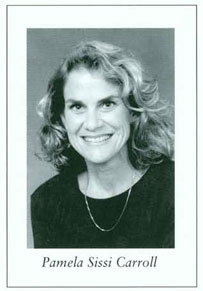ALAN v29n1 - A Note from the Editor
A Note from the Editor

Many friends with whom I have spoken since the morning of September 11,2001, have expressed the feeling that much of what we spend our time doing seems like insignificant fluff in light of the heft of the national tragedy. Many of us have asked ourselves if it is worthwhile. to spend time with young adult books, when we cannot even assure our children or our students that they are absolutely safe. Surely we all feel a little more helpless than we ever have before.
And yet, unless we are among the thousands whose lives have been directly violated by the tragedies, we have had to get back to careers, roles, banal daily affairs. And we have to look for significance in the ways we live and the lives we touch. For many of us, that means continuing to reach out to adolescents through the medium of young adult books. It means continuing to show them that we are eager to listen to their responses to books, and to the questions and concerns raised by books or their themes and topics. It means continuing to put the best literature for young people into the hands of adolescents, and letting them talk with us, and with each other, about how it speaks to them. It means recognizing, as Gordon Pradl explains in Literature for Democracy (Boynton/Cook Heinemann, 1996) that reading is a social act, and therefore spending time with literature is worth our time as teachers, media specialists, and others who interact with adolescents. We need to heal, and yet with a scar, so that we never forget how quickly our lives can change. And so we go on.
In this issue of The ALAN Review , we have the opportunity to learn more about how to connect with adolescents through the words of three featured authors. Don Gallo interviews Randy Powell, who discusses his practice of writing from his heart about ordinary people in normal circumstances. Ann Angel, a writer and teacher, uses Norma Fox Mazer's books when teaching high school students. She interviews Norma Fox Mazer, who discusses the ways that her life and the practice of her art have, for years, become intertwined. CJ Bott, a teacher of high school English, convincingly demonstrates how powerful Mazer's Out of Control can be when she describes using the novel to teach students about the responsibilities of leadership. T.A. Barron, a writer popular among young readers for his fantasy novels and respected among adults for his nature writing, shares responses to my interview questions; his words encourage us to pay attention to the truth of good fiction, and the magic of the natural world.
Christine Sanderson provides us with an archetypal lens through which we can re-read works of the secondary canon and complementary young adult novels. Ann Wilder and Alan Teasley present terrific resources for middle and high school teachers and media specialists in their always-popular High School Connections column.
Tom Philion focuses our attention on the subtle treatment of the Viet Nam War in Chris Crutcher's Chinese Handcuffs , and, with ironic timing, raises questions about the ways that we record and remember history. Elaine O'Quinn discusses the strength and support that Laurie Halse Anderson offers voiceless female readers in Speak. Don Latham also examines the ways that silenced voices are heard in his careful retrospective look at John Donovan's I'll Get There. It Better be Worth the Trip , one of the first young adult books to include the theme of homosexuality. Deborah W. Overstreet reminds us of the need to read history carefully in her overview of YA books that portray laborers. John S. Simmons offers an historical lens for considering early sports novels. In the midst of this literary wealth, editor Jeff Kaplan and his team of reviewers introduce us to recently published young adult books.
And so, with respect for the innocent who have died, and with prayers of hope for our future, we go on.
Walt Whitman offers hope, it seems to me, in these lines from Leaves of Grass :
Roaming in Thought (After Reading Hegel)
Roaming in thought over the universe, I saw the little that is Good
Steadily hastening towards immortality,
And the vast all that is call'd Evil I saw hastening to merge itself
And become lost and dead. (from Book XX, 1891)
Perhaps the best young adult literature offers us a way to reach adolescents so that we can talk with them about Good, and listen as they share their visions of the Good with us.